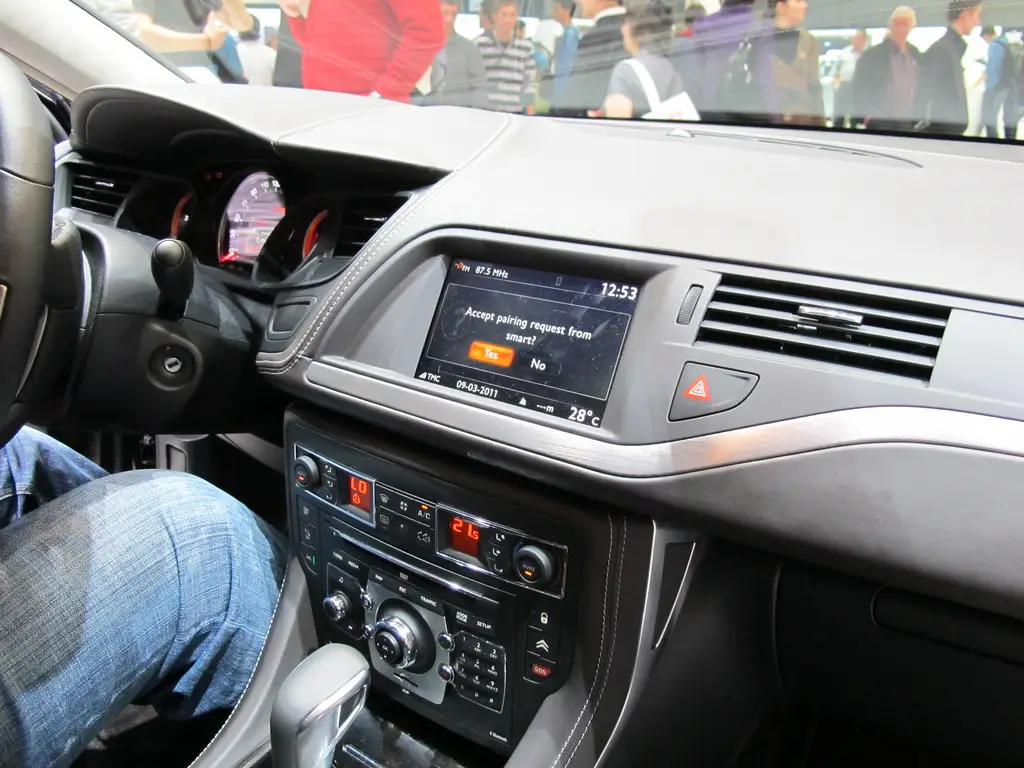How does a car GPS tracker work?
A GPS car tracker is an electronic device that tracks a vehicle's geographical position in real time. It works by using the GPS (Global Positioning System) satellite network to determine the vehicle's exact coordinates at all times.
1. Connecting to GPS satellites
The GPS tracker receives signals from several satellites orbiting the Earth. Typically, the plotter connects to a minimum of three to four satellites to triangulate the exact position of the vehicle. This triangulation enables precise calculation of the plotter's geographic coordinates (latitude and longitude).
2. Data transmission
Once the position has been determined, the GPS tracker sends the data to a central server via a cell phone network (GSM, GPRS or 4G). Some tracker models also use satellite networks to transmit data, particularly in areas with limited mobile coverage.
3. Real-time tracking
The data transmitted is accessible to the user via a mobile application, website or dedicated platform. This makes it possible to track the vehicle's movements in real time, visualize its itinerary, and obtain additional information such as speed, direction and trip history.
4. Security and alarms
In addition to position tracking, GPS trackers can be equipped with sensors to detect abnormal situations, such as attempted theft, unauthorized movement or loss of network connection. In the event of an alert, the tracker immediately sends a notification to the user via SMS, e-mail or app, enabling rapid reaction.
5. Data storage and analysis
The information gathered by the GPS tracker can be stored on the server for later analysis. This can be useful for fleet management companies, who can optimize routes, monitor driver behavior, and improve vehicle management.
The GPS tracker is therefore a powerful tool not only for ensuring vehicle safety, but also for improving travel management and efficiency, whether for personal or professional use.
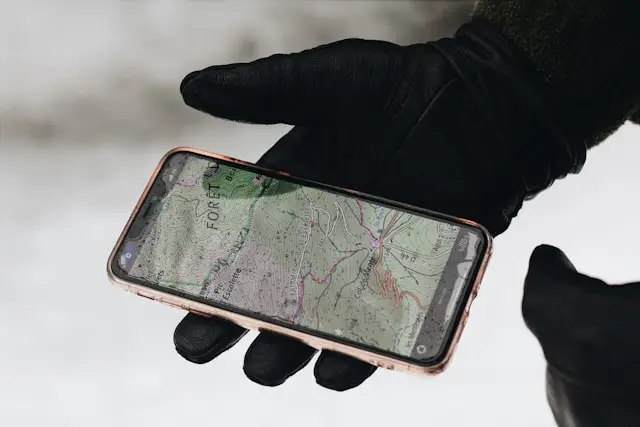
Which car GPS tracker to choose?
When choosing a GPS tracker for your car, it's important to consider the best-performing models on the market. Here's a comparison of the best models available, based on their features, reliability and value for money:
1. TKSTAR TK905 - €60
Features: Autonomous with a 5000 mAh battery providing up to 90 days' autonomy. Real-time tracking, movement alerts and geofencing.
Benefits: Long battery life, easy to install with powerful magnets. Ideal for discreet use.
Disadvantages: Requires SIM card subscription for real-time tracking.
2. Invoxia GPS Tracker - €130
Features: Ultra-compact, stand-alone device with several months' autonomy. SIM-free operation, with affordable subscription.
Advantages: Discreet, lightweight and easy to hide. No SIM card fees, subscription included for the first two years.
Disadvantages: Fewer advanced features than larger models.
3. Tracki Mini GPS Tracker - €20
Features: Compact, with geofencing, real-time alerts and trip history. 5-day battery life.
Advantages: Small and lightweight, suitable for discreet installation. Offers high location accuracy.
Disadvantages: Requires monthly subscription, limited autonomy.
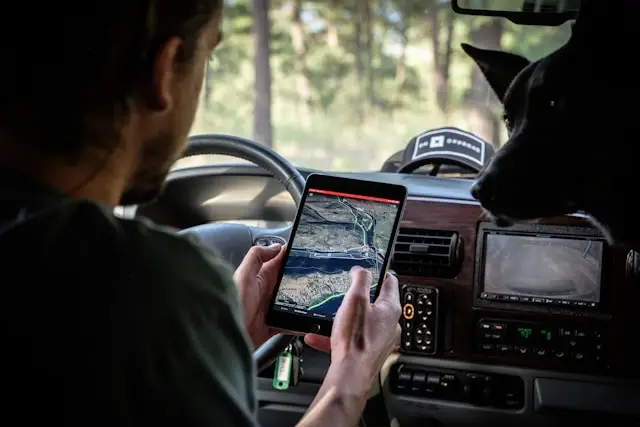
Are there any car models pre-equipped with GPS trackers?
ome car models come pre-equipped with GPS trackers integrated directly into the vehicle's system. These devices are generally part of the advanced connectivity and safety systems offered by automakers.
Many modern vehicles, particularly those in the premium ranges, are equipped with on-board connectivity systems such as OnStar from General Motors, BMW ConnectedDrive, Mercedes me from Mercedes-Benz, or FordPass.
These systems often include a GPS tracker that enables the owner to locate the vehicle remotely via a mobile app, receive safety alerts, and even lock/unlock doors remotely.
Integrated GPS tracker systems are often included in the options or connectivity packages of new vehicles. However, after a free trial period, these services may require a monthly subscription to continue to benefit from advanced features. Costs vary according to manufacturer and services included.
Among the brands offering vehicles with integrated GPS trackers are Tesla, BMW, Mercedes-Benz, Audi and Ford. These systems are generally available on late-model and high-end vehicles.
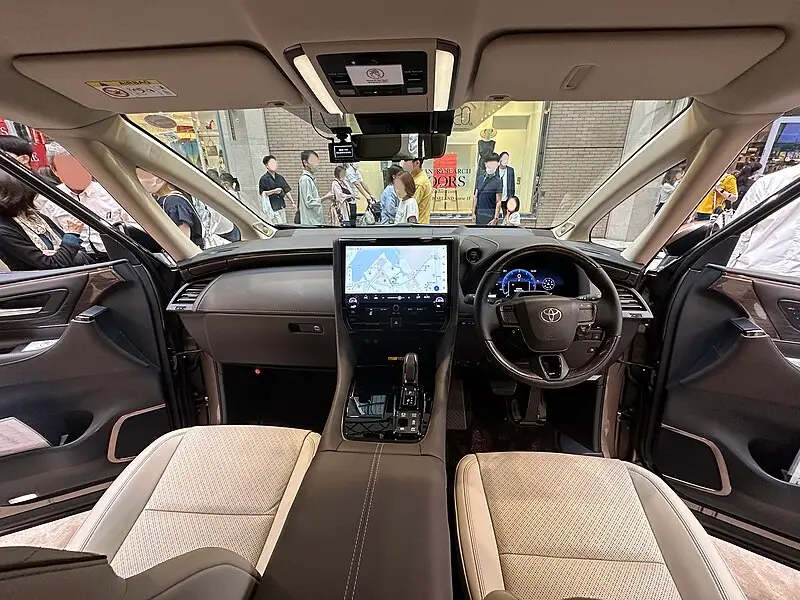
Where to place a GPS tracker in your car?
Placing the GPS tracker in your car is crucial to ensure good signal reception and discretion.
- Under the dashboard: Placing the GPS tracker under the dashboard is a common option, as this location offers good signal reception yet is difficult for a potential thief to detect. Make sure the tracker is not blocked by metallic materials, which can interfere with the GPS signal.
- In the trunk: The trunk is another discreet place to install a GPS tracker. However, it's important to choose a location where the signal won't be too weak. Ideally, the tracker should be mounted under the trunk carpet or near the tail lights.
- Under a seat: Installing the GPS tracker under a seat, especially the driver's or front passenger's, is a discreet option.
- Glovebox or center console: The glovebox or center console are convenient, easy-to-access locations for a GPS tracker. However, the glovebox is less discreet.
- Under the vehicle: For a totally invisible installation, some users opt to place the GPS tracker under the vehicle, attached to the chassis with powerful magnets. This method is ideal, and reminds us directly of Hollywood action movies, but requires a waterproof, shock-resistant tracker to "survive" outdoor conditions.
Legality of car GPS trackers in France
The use of GPS trackers for cars is legal in France, but subject to strict rules to protect privacy. Here's what you need to know:
1User consent
It is mandatory to inform and obtain the consent of the persons concerned before installing a GPS tracker on a vehicle, especially if it is a car used by several people (as in a company fleet). Failure to comply with this rule may result in legal sanctions.
Data protection
Data collected by a GPS tracker is considered personal data and must be protected in accordance with the General Data Protection Regulation (GDPR). This involves secure data management, with restricted access and protective measures against unauthorized access.
Professional use
For companies, the installation of GPS trackers on company vehicles is legal, but must be justified by legitimate reasons, such as security or fleet management. Employees must be informed of any such surveillance, and the data collected must be used in a proportionate manner.
Prohibitions
It is illegal to install a GPS tracker on a vehicle belonging to another person without their consent, unless this is done as part of an authorized police investigation. Unauthorized use is punishable by law.

What should you do with your GPS tracker if it's stolen?
If your car equipped with a GPS tracker is stolen, this device can be an invaluable tool for quickly recovering your vehicle. Here are the steps to follow:
1. Contact the police
As soon as you discover the theft, contact the police immediately to report the incident. Provide them with all the necessary information, including the make, model and license plate of the car.
2. Activate real-time tracking
Use your GPS tracker's application or platform to activate real-time vehicle tracking. This will enable you to track your car's position live and provide this information to law enforcement agencies, making it easier to recover the vehicle.
3. Don't go it alone
Although the GPS tracker can tell you the exact location of your stolen car, it's crucial that you don't attempt to recover the vehicle yourself. Let the police handle the situation to avoid any risk to your safety.
4. Lock the vehicle remotely
Some GPS trackers offer the option of remotely shutting down the engine or locking the doors to prevent thieves from continuing their journey. If your tracker has this feature, use it only after consulting the police to avoid any complications.
5. Monitoring the situation
Continue to monitor the vehicle's position via the GPS tracker, and keep in touch with the authorities to keep them informed of any changes in the car's location.
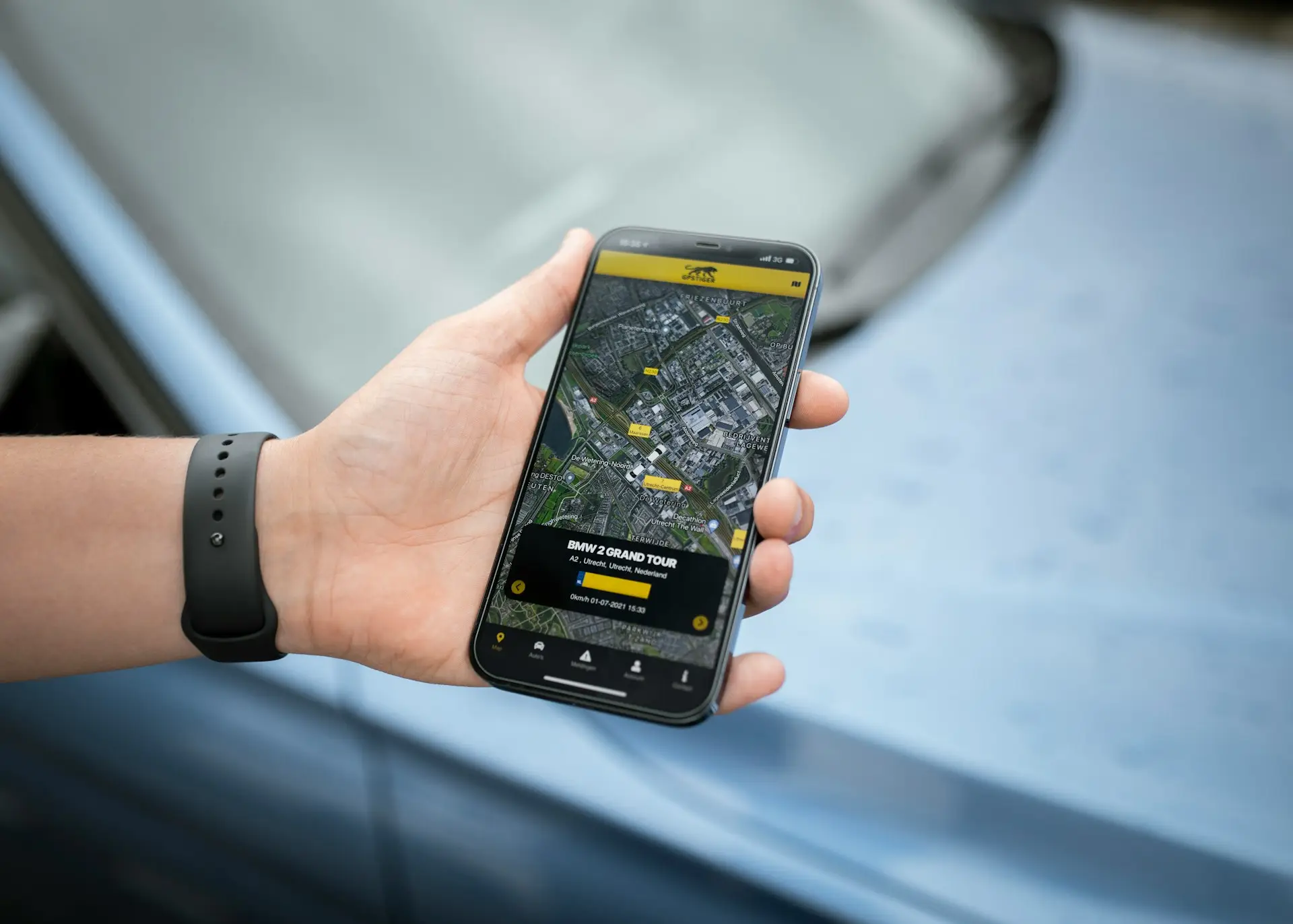
Car GPS tracker FAQ
What situations can a car GPS tracker be used for?
A GPS tracker makes it possible to quickly locate a stolen vehicle. In the event of theft, the owner can track the car's position in real time and transmit this information to the police, increasing the chances of recovering the vehicle quickly.
For companies with several vehicles, a GPS tracker is an essential fleet management tool. It helps track journeys, optimize routes, monitor driver behavior, and reduce operating costs by improving efficiency.
What are the best brands of car GPS trackers?
Several brands stand out in the car GPS tracker market, offering reliable, high-performance products. Here is a selection of the best brands:
TKSTAR is cis known for its rugged GPS trackers with long battery life. The brand offers popular models for discreet vehicle surveillance. Their products are particularly appreciated for their value for money.
Invoxia is renowned for its ultra-compact, lightweight GPS trackers. Their devices are SIM-free, with a subscription included, and are ideal for discreet use. They also offer good battery life.
Spytec offers top-of-the-range GPS trackers with frequent position updates and excellent accuracy. They are particularly useful for fleet management and corporate vehicle security.
Garmin is a well-known brand in the field of navigation and GPS. Their car GPS trackers offer exceptional reliability, advanced features and easy integration with other Garmin devices.
How much does a car GPS tracker cost?
The cost of a car GPS tracker varies according to model, functionality and brand. In general, GPS trackers cost between 50 and 300 euros:
- Low-end GPS trackers (€50-100): These models offer basic functionality, such as real-time tracking and trip alerts. They are suitable for personal or single-vehicle use.
- Mid-range GPS trackers (€100-200): These trackers offer more features, such as geofencing, trip history and longer battery life. They are often used by individuals seeking greater security.
- Top-of-the-range GPS trackers (€200-300+): These models offer advanced features such as power failure detection, remote locking and additional sensors. They are ideal for fleet management companies or users requiring robust solutions.
In addition to the initial cost of the tracker, many models require a monthly subscription to access real-time tracking services, which can vary from €5 to €20 per month. Some models offer inclusive subscriptions for a limited period, while others allow you to choose between monthly, annual or lifetime packages.
Does the car GPS tracker work in areas without a mobile network?
Yes, a car GPS tracker can still record the vehicle's position even in areas without a mobile network. However, it will not be able to transmit this data in real time. Once the tracker regains a network connection, it will send the recorded information to the tracking platform.
How long does the battery last in a car GPS tracker?
The battery life of a car GPS tracker depends on the model and usage. Stand-alone GPS trackers can last from a few days to several months.
For example, a model with a 5000 mAh battery can last up to 90 days in stand-by mode. For wired trackers, there is no limit, as they are powered directly by the vehicle's battery.
Can I install a car GPS tracker myself?
Yes, many car GPS trackers are designed for easy installation by the user.
OBD trackers, for example, plug directly into the vehicle's OBD port, without the need for special tools or skills.
Stand-alone and magnetized trackers can simply be placed inside the vehicle.
However, for wired trackers requiring connection to the car's electrical system, it is advisable to call in a professional for secure installation.
Can a car GPS tracker be detected or jammed?
It is possible, though rare, for thieves to use GPS jammers to prevent a tracker from transmitting its position.
However, quality GPS trackers can detect jamming attempts and send an alert to the user.
Most trackers are designed to be installed discreetly, making them difficult to detect.
What is the range of a car GPS tracker?
The range of a GPS car tracker is theoretically unlimited, as long as the tracker can receive a GPS signal and is within mobile (or satellite, depending on the model) coverage.
You can track your vehicle from anywhere in the world via an app or website, provided the tracker has access to a network to transmit its data.
Do all car GPS trackers require a subscription?
Most car GPS trackers require a subscription to access real-time tracking services and other advanced features, as they use the mobile network to transmit data. However, some models, such as those using specific networks or offering limited coverage, can operate without a subscription, but with restricted functionality.
Can I use a car GPS tracker abroad?
Yes, provided it is configured to work with international mobile networks.
Some trackers offer worldwide coverage, while others require an international SIM card or roaming package.
Check your GPS tracker's options before you travel to make sure it will work properly abroad.

